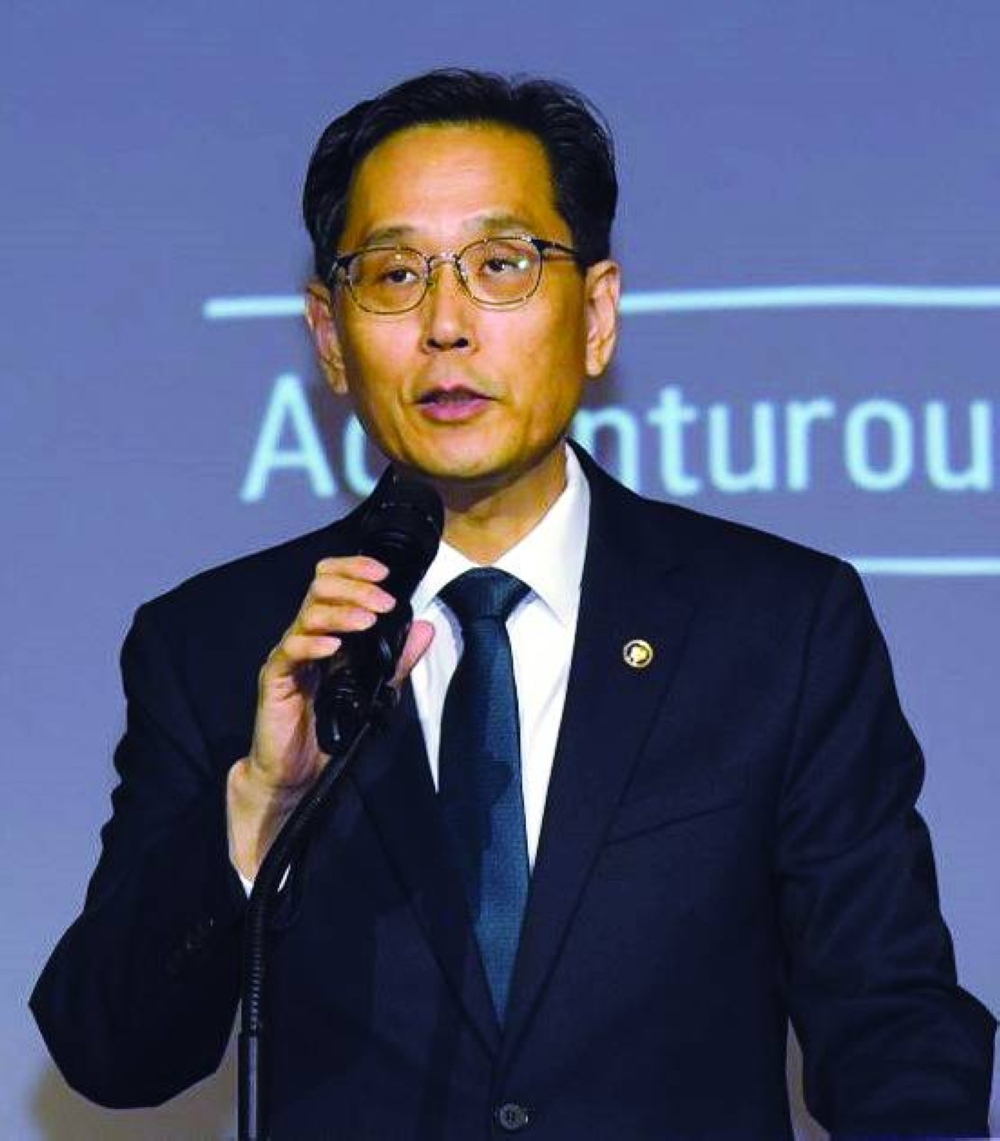South Korea’s technological advancements in food production will play a significant role in helping boost the self-sufficiency efforts of Qatar and other countries in the Middle East, an official of the East Asian country has said.
The Middle East, including Qatar and Saudi Arabia, has recently shown “a growing interest” in South Korea’s Information Technology (IT) and smart agriculture “as a way to increase its food self-sufficiency,” according to South Korea's Vice-Minister of the Ministry of Agriculture, Food and Rural Affairs, Han Hoon.
“And accordingly, South Korean companies are expanding their presence in the Middle East,” Han told Gulf Times, adding that the export volume of South Korean agri-food products to Qatar was estimated at around $7.21mn in 2022.
He said, “processed food products, such as instant noodles, corn oil, and biscuits account for 93% of the key export items, and fresh food products, such as kimchi and ginseng, are also being exported.”
Han underscored the importance of smart farming in increasing self-sufficiency in the field of agriculture. He explained that smart farming, which can automatically control the environment so that crops can grow well with the support of the Internet of Things (IoT) and big data, will ensure sustainable food production even in harsh environments, such as the desert climate.
“Korean smart farming companies have not yet exported their products to Qatar, but if South Korea and Qatar continue to enhance bilateral co-operation in smart farming, mutual exchanges between the two countries in the agricultural industry will also be further facilitated in the near future,” Han pointed out.
The vice-minister also emphasised that Qatar and South Korea have undertaken several initiatives or programmes to strengthen agricultural ties and promote food security between the two nations.
In January 2019, Han said South Korea and Qatar signed a memorandum of understanding (MoU) on smart farming co-operation. Through this MoU, the two countries shared mutual recognition of the importance of smart farming cooperation, he also said.
On the back of this MoU, the two countries pledged to strengthen cooperation regarding research and development (R&D) and transfer of environmentally-friendlier smart farming technologies, as well as the support for investment in smart farming companies, Han further explained, adding that Qatar and South Korea have been discussing the revision of the MoU since February in 2023 to make bilateral working-level cooperation more concrete.
He said the revised version will include specified descriptions of the areas of smart farming co-operation, as well as the establishment of a Korea-Qatar Joint Committee. Both countries have currently reached an agreement on the revised version and will complete the revision during an upcoming bilateral high-level meeting, Han revealed.
After the revision of the MoU is completed, both sides will establish the joint committee in the field of smart farming to allow the exploration of concrete measures to enhance bilateral co-operation, such as the promotion of collaborative research on smart agriculture technologies, Han said.
He said: “If bilateral co-operation in smart farming is further strengthened, then it will make a significant contribution to the implementation of the National Food Security Strategy established by Qatar.”
The Republic of Korea aims to rank in the top 15 of the Global Food Security Index (GFSI) through diverse measures like extending the period for strategic food reserves and setting the target rate of food self-sufficiency, among others. In the GFSI, South Korea ranked 24th out of 113 countries in 2021, Han stressed.
“Also, if the working-level delegation from Qatar visits South Korea this year, it will provide a good opportunity for them to see our smart farming technology and allow for both sides to make bilateral co-operation more concrete,” Han added.

Han Hoon, South Korean Vice-Minister of the Ministry of Agriculture, Food and Rural Affairs .

